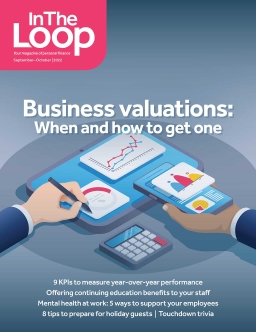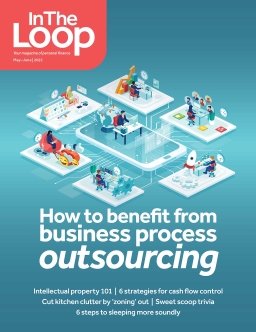Offering continuing education benefits to your staff: Worth the cost?

According to the CNBC/Survey Monkey Small Business survey, 52% of small business owners claim it’s hard to find qualified individuals because of labor quality.¹ Chances are your business falls into that 52%.
Do you have a hard-working employee with
a knowledge gap? How about a job candidate who seems to be a great culture fit and checks almost every box, but maybe their skills aren’t up to snuff? These are common dilemmas among small businesses... and guess what? It’s okay. Read on to find out why.
What can you do to help fill that knowledge gap or help potential employees up their skills? You can either spend time and money finding 100% qualified employees or you can support the continuing education of those who may fall short of that 100%. You may think, “Well, doesn’t that cost money, too?” Yes, it does. But it’s an investment—not only for your business but for your employees.
In this article, we’ll dive into reasons businesses should offer continuing education benefits to their employees so you can decide: Is it worth the cost?
It helps retain employees and enrich company culture
According to a 2019 Work Institute study, 22% of employees leave their current jobs for professional development. It may not sound like a significant number, but if your business has 10 employees, two could potentially leave to pursue a position that offers professional development, such as certification courses or even completing a degree.
By providing continuing education courses or tuition reimbursement, employees see that they’re valued team members and are more likely to stay. And with employee turnover costing your company 33% of an employee’s salary per resignation, it’s well worth the cost for classes to improve a skill or craft to increase your employee’s knowledge and improve your business.
When you invest in your employee’s education, you’re confirming that you’re invested in them, both professionally and personally. And that goes a long way with your company’s culture. Employees who feel fulfilled by their employer have increased loyalty and stick around.
It helps improve performance
Many employees have a thirst for knowledge and a desire to further their careers. Times change and businesses progress; skills are ever evolving and technology advances consistently. Instead of hiring new employees, businesses can send their team members to training programs that will close the knowledge gap.
The benefit of investing in your employees is that they learn the skills that your business needs. What does that mean? They can perform their tasks better and contribute their new expertise to your business model, which will improve your business’s overall performance. It’s a win-win-win all around.
It can offer tax breaks to you and your employees
If you decide to offer continuing education benefits to your team, keep in mind that the benefits can also qualify as deductible business expenses. A bonus for your employees is that if you choose to pay or reimburse your employees for their work-related education, they can exclude the payment or reimbursement from gross income (aka a working condition fringe benefit).
For employees to receive tax-free benefits, their education must meet one of two requirements:
• The education is legally required for the employee to maintain their current salary, status or job.
• The education maintains or improves the skills required in their current employment.
Employers can take advantage of educational assistance programs so they can provide their employees up to $5,250 annually, excluded from the employees’ income. This benefit can be claimed as a business deduction, and it doesn’t require FICA or FUTA payroll taxes to be paid under the program.
Disclaimer: Always consult your tax professional regarding legalities around tax-free benefits and business deductions.
Is it worth the cost?
While only you can answer that, we support continuing education for both personal and professional development. If you’re worried about the cost, remember that you’re making an investment in your employees and their careers with your company. And keep in mind that there are some pretty good tax benefits available for everyone. Bottom line: Your employees aren’t likely to complain about gaining more knowledge and increasing their skill levels.
¹CNBC/SurveyMonkey Small Business Survey, 2019
Back to issue








